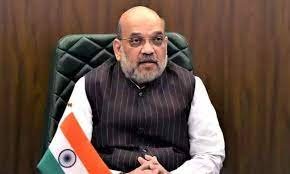In a significant move to address the ongoing violence in Manipur, Union Home Minister Amit Shah convened a crucial meeting with Kuki civil society groups in Churachandpur district. During the meeting, Shah made a fervent appeal for a 15-day period of peace and announced the formation of a judicial inquiry commission, likely to be headed by a retired Supreme Court judge, to probe the recent unrest in the region. This proactive approach by the central government aims to bring stability and justice to Manipur, providing hope for the affected communities and the entire state.
The meeting with Kuki civil society groups served as a platform for Amit Shah to engage with representatives and leaders from the community. Their firsthand accounts and insights into the situation on the ground are crucial for understanding the complexities of the violence and working towards a sustainable resolution. By actively involving these groups, the government is emphasizing the importance of inclusive dialogue and collaborative efforts to restore peace in Manipur.
The appeal for a 15-day period of peace holds significant weight, as it provides a breathing space for all parties involved to deescalate tensions and find common ground. This respite from violence is crucial for the affected communities to rebuild trust, heal wounds, and engage in meaningful discussions that can lead to long-term solutions. The appeal by Amit Shah showcases the government’s commitment to fostering an environment conducive to reconciliation and lasting peace.
Additionally, the announcement of a judicial inquiry commission headed by a retired Supreme Court judge demonstrates the government’s determination to ensure a fair and impartial investigation into the recent violence. This commission will be tasked with probing the root causes of the unrest, identifying the perpetrators of violence, and recommending appropriate measures to prevent future occurrences. By entrusting the inquiry to a retired Supreme Court judge, the government is signaling its commitment to upholding the highest standards of justice and transparency in addressing the situation.
Muan Tombing, the general secretary of the Indigenous Tribal Leaders Forum (ITLF), confirmed these developments and highlighted the significance of the proposed judicial inquiry commission. Tombing expressed optimism about the commission’s potential to bring about justice and accountability, emphasizing the need for a comprehensive investigation into the violence. The formation of the commission reflects the government’s recognition of the importance of a thorough examination of the events that transpired and its commitment to delivering justice to the affected communities.
The announcement of the judicial inquiry commission and the appeal for peace in Manipur underscore the government’s proactive approach in addressing the violence and its commitment to restoring harmony in the region. By involving Kuki civil society groups and announcing a transparent and independent investigation, the central government aims to rebuild trust among the affected communities and foster a sense of security and justice. These initiatives mark a crucial step forward in the path towards long-lasting peace and stability in Manipur.
As the situation evolves, it remains imperative for all stakeholders to engage in constructive dialogue, prioritize the well-being of the affected communities, and work collectively to prevent further violence. The success of the judicial inquiry commission will depend on its independence, integrity, and adherence to due process, and its findings can serve as a crucial roadmap for addressing the underlying issues that have contributed to the unrest. With the support and cooperation of all parties involved, Manipur can look forward to a brighter and more peaceful future.


